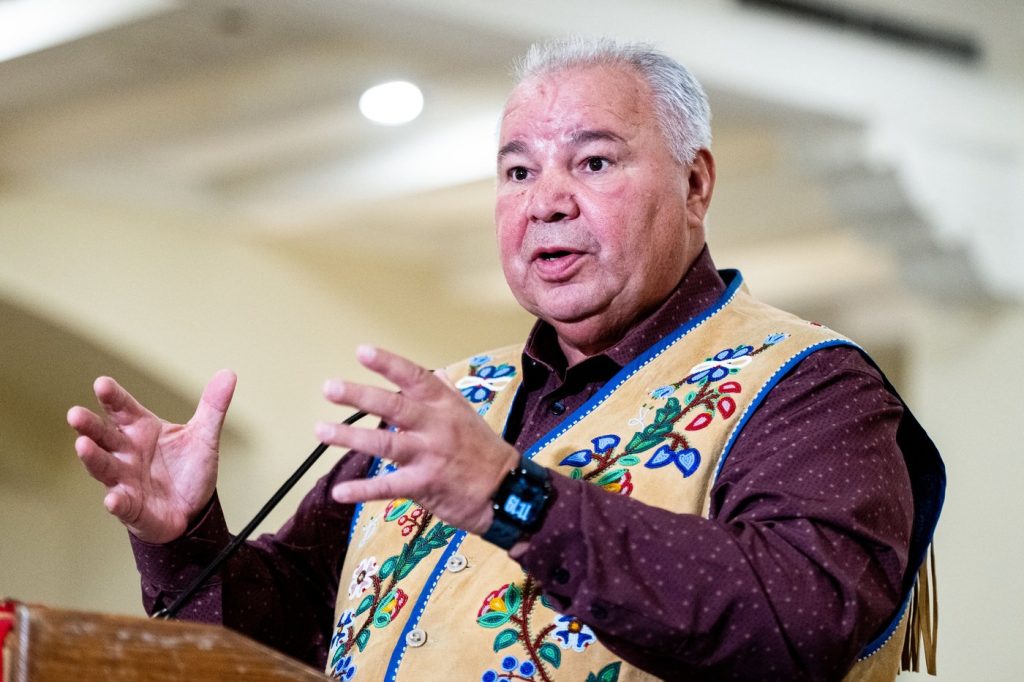OTTAWA — First Nations in Ontario, along with the Manitoba Métis Federation, are alleging that nearly $1 billion in federal funding has been misallocated to a group they claim is fraudulently asserting Métis identity. The Chiefs of Ontario, an organization representing 133 First Nations in the province, recently shared data revealing that over a 20-year span, a total of $819,836,061 has been funneled from the federal government to the Métis Nation of Ontario (MNO).
The Chiefs of Ontario assert that the MNO lacks legitimacy and is detrimentally affecting the rights and funding available for genuine First Nations groups. They questioned why the Canadian government continues to provide substantial funding to the MNO despite considerable evidence that contradicts its claims to Métis rights. The funding in question was distributed across several federal departments, including Indigenous Services Canada, Crown-Indigenous Relations, Parks Canada, and Environment and Climate Change Canada. The MNO has also received financial support from the Canadian Nuclear Safety Commission and the Impact Assessment Agency for projects within their communities.
This ongoing conflict between First Nations and the MNO has roots in a 2017 decision by the Ontario government, which recognized six “new, historic” Métis communities in the province. Moreover, a federal bill proposed in 2023, which did not progress, intended to affirm the MNO's right to self-government. Critics, including First Nations and other Métis groups, argue these recognized communities lack legitimate claims to Métis heritage and contend that both the provincial and federal governments should not recognize them.
Recently, a report by history professor Leila Inksetter from the University of Quebec in Montreal was commissioned by the Wabun Tribal Council. It concluded that no evidence supports the existence of a mixed-ancestry community in the Wabun Tribal Council’s territory. The MNO dismissed this assessment, stating that despite years of efforts to undermine its legitimacy, “nothing has changed.”
Furthermore, another report, which was published in the same timeframe and commissioned by Saugeen Ojibway Nation, echoed similar findings, indicating a lack of evidence for a distinct Métis community in the territory of Southwestern Ontario. This report emphasized that while individuals of mixed ancestry may have existed, they do not establish the basis for a distinct community claim within this area.
Jennifer St. Germain, MNO Chief Strategy Officer, expressed the importance of collaboration between Métis and First Nations, emphasizing that both groups should not work in opposition. She called for unity in advocating for their rights and for collaborative efforts to ensure proper investments in community needs. A plea was made to return to discussions founded on mutual respect and shared values.
The Chiefs of Ontario criticized the federal and provincial governments for lacking thorough research prior to recognizing the MNO and pointed out that they have refused to consult with First Nations or share the evidence that led to the recognition. They emphasized the necessity of acknowledging the growing body of research that contradicts the claims made by the MNO.
The dispute over Métis heritage claims intensified recently, threatening the unity of the Métis National Council, which used to act as a national voice for the Métis population. Last year, the Métis Nation-Saskatchewan left the council due to concerns regarding the MNO, claiming that the council had neglected the integrity of its citizenship registry. This was followed closely by the departure of the Métis Nation British Columbia, citing similar issues regarding the council's ability to function as an effective national advocacy organization.
Will Goodon, Minister of Identity Protection and Inter-Indigenous Affairs for the Manitoba Métis Federation, raised concerns over the limited public funding available to Métis communities. He stated that such resources should not be awarded to organizations that do not align with the recognized historical Métis Nation, primarily descended from the Red River communities in Manitoba. He pointed out that certain grants, including one from Parks Canada meant to support ecological initiatives, raised concerns about potential land claims by the MNO in territories that should rightfully belong to First Nations.
Moreover, the Manitoba Métis Federation expressed discontent with the recent invitation extended to MNO leaders for a federal meeting addressing major projects legislation. They chose to boycott the gathering, arguing that the inclusion of MNO representatives undermined the event's integrity and jeopardized the government's agenda for major project consultations. They reiterated the importance of consulting with rightful landholders—First Nations—rather than adopting a “pan-Indigenous” approach that could dilute their rights.











